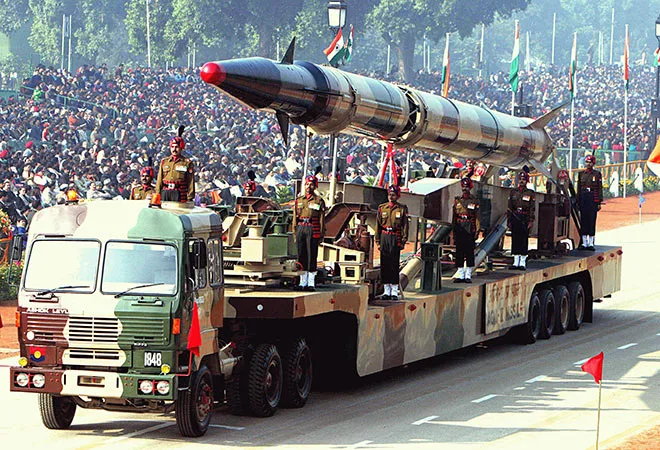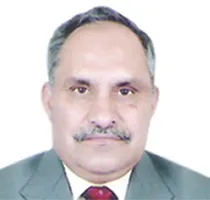More than 2,000 years ago, Aristotle remarked, “One swallow does not a summer make.” Obviously, Prime Minister Narendra Modi didn’t give this proverb the thought it deserves; otherwise he would have been far more circumspect before waxing eloquent about the successful deployment of India’s nuclear ‘triad’ — the capability to launch nuclear weapons from land, air and sea. For the uninitiated, if nuclear weapons were to act as a deterrent against any adversary, the capability to launch them from land, air and sea would be inescapable. However, given the proliferation of surveillance devices, land-based missile sites and air bases — from where suitably armed aircraft can operate —are extremely vulnerable to being targeted in a pre-emptive attack. This makes sub-surface capability vital as it is difficult to locate or target. It, thus, provides the ideal platform to launch retaliatory strikes, which in the parlance of “mutually assured destruction”, are referred to as second strike capability.
Amongst various classes of submarines, nuclear-powered ones are ideal platforms for this task as they are far more difficult to detect than conventional diesel-electric ones. They are far more silent and can remain submerged and at sea for a much longer duration. The nuclear-powered and indigenously developed submarine, INS Arihant, does, therefore, provide us with this capability; though at a very nascent stage as only a handful of nations have this capability. While there is much to be proud of, the truth is that one submarine, equipped with a missile of limited range, will have very marginal impact on our deterrence capability, something our adversaries, nuclear-armed states, are fully conversant of. To be effective, as Admiral Arun Prakash, former Chief of Naval Staff, had suggested, there is a need for three additional submarines with far superior capabilities if we are to deploy one submarine on deterrence patrol at all times. This is something that is presently at least a decade away given the delays the ‘Advanced Technology Vessel’ (ATV) project has faced over the years.
Add to that the necessity for a far more sophisticated and robust command and control system, which if our higher defence management is any indication, has a long way to go. The very fact that we have not yet been able to put in place joint theatre commands or appoint a Chief of Defence Staff, not forgetting the disastrous state of our civil-military relations, doesn’t do much for our credibility. It is, therefore, inconceivable that the Prime Minister was unaware of the implications of the induction of the INS Arihant. Obviously, his reference to the subject was clearly aimed at a domestic audience and an attempt to show himself off as a strong and decisive leader. One cannot help but get the impression that this is just another attempt to use the military to advance his and the BJP’s political agenda, just as he had done earlier during the run-up to the Uttar Pradesh State elections when he used the so-called ‘surgical strikes’ to his party’s advantage.
Any Government that wishes to emphasise its strength of purpose or leadership against inimical actions by an adversary, has the option to respond with conventional force, especially if it finds itself under extreme public pressure due to an adverse political climate. Nuclear weapons, however, are a completely different kettle of fish and cannot be treated to threaten an adversary, unlike what Pakistan has been attempting to do over the years. Whatever analysts may suggest, the use of nuclear weapons spells utter disaster and implies a last desperate attempt to deliver a death blow when faced with an existential crisis. The fact is that even our most well-trained and elite units are unlikely to be able to continue fighting cohesively if they suffer around 30 per cent casualties. What to talk of the country’s condition having to deal with millions dead in the event of a full-scale nuclear war? Nuclear weapons are the last resort and should only be used in time of emergency, when our very survival is at stake. It will certainly leave no winners.
The last thing we would need is our nuclear capabilities being used to gain brownie points with a domestic audience. In any case, the ATV Project commenced in the 1980s and can hardly be claimed as an achievement of this Government, though mistruths in such matters are hardly uncommon. More importantly, politicians in general and this Government in particular, must understand that nuclear weapons are not a panacea for tackling security challenges to our sovereignty. Conventional military has to be given the necessary support if it is to be successful in its mission. Unfortunately, this Government, like the previous ones, has been grossly negligent in this regard, primarily out of a lack of self-confidence to provide governance and a unsubstantiated fear that a strong military may push it aside and take control.
This commentary originally appeared in The Pioneer.
The views expressed above belong to the author(s). ORF research and analyses now available on Telegram! Click here to access our curated content — blogs, longforms and interviews.




 PREV
PREV


